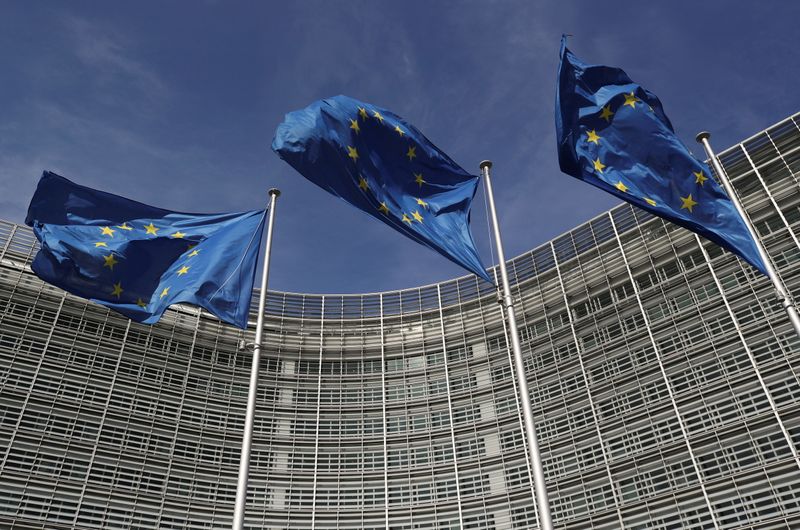By Jan Strupczewski
BRUSSELS (Reuters) -Euro zone economic sentiment surged in April as vaccination campaigns against the coronavirus gathered speed, with sharp gains across all sectors of the economy that economists said marked the end of the pandemic-induced recession.
The European Commission’s monthly sentiment survey for the 19 countries sharing the euro on Thursday showed optimism rising to 110.3 points in April from 100.9 in March, beating consensus estimates in a Reuters poll of a 102.2 reading.
“The services sector now also in expansion mode. We can now declare the Covid-19 recession over. Inflation expectations also continue to increase,” ING bank economist Peter Vanden Houte wrote in a note to clients.
The mood became much more upbeat in industry, rising to 10.7 points from 2.1 in March, far exceeding consensus expectations of an increase to 4.0. In services, the euro zone’s biggest sector responsible for more than two thirds of gross domestic product, the reading went up to 2.1 points from -9.6 in March, also far above expectations.
Consumer optimism rose to -8.1 from -10.8, in line with an initial estimate published last week, and in retail trade to -3.1 from -12.2.
The optimism translated into manufacturing industry’s selling price expectations rising to 24.1 points in April from 17.5 in March, coming very close to the highest reading since 2000, which was 25.5 points in March 2011.
Consumers also began to expect higher inflation over the next 12 months, with the reading going up to 19.6 in April from 18.6 in March, moving above the average reading since 2000.
“The big question is how temporary these price increases will be,” Vanden Houte said.
“Will they disappear once some of the supply chains problems are resolved? With strong demand to be expected in the second half of the year and a further inventory build-up in the offing, we doubt that price tensions will disappear quickly,” he said.
He said that while it was too early to expect a price-wage spiral, if there is a strong recovery in the coming months as suggested by the April sentiment data, the European Central Bank may become less inclined to keep up its bond buying scheme.
“The chances of the Pandemic Emergency Purchase Programme being lengthened after March 2022 are getting slimmer by the day and the central bank could even suggest that it will not fully spend the current envelope,” he said.
(Reporting by Jan Strupczewski; editing by Philip Blenkinsop and Toby Chopra)





















